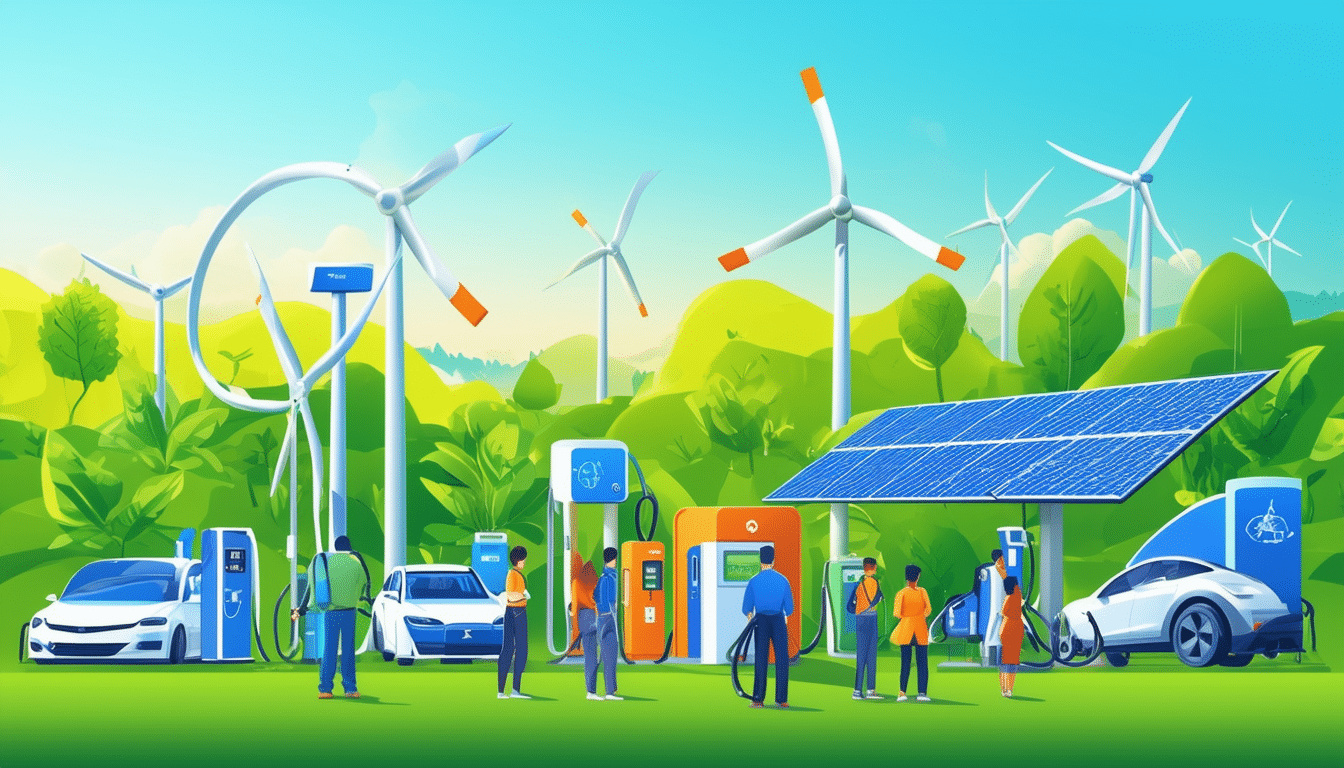The role of alternative fuels in sustainability

The search for a sustainable future has become imperative in a world facing the challenge of climate change and environmental degradation. In this context, alternative fuels emerge as a key solution to reduce greenhouse gas emissions generated by transportation. These non-fossil fuels, such as hydrogen, biodiesel, and electricity, offer the opportunity to transform the way we move, promoting sustainable mobility and fostering energy efficiency. Thus, their proper implementation not only contributes to the conservation of natural resources but also plays a fundamental role in the transition towards a more ecological and responsible world.
In the quest for a more ecological and efficient transportation model, alternative fuels have gained crucial importance. These energy sources not only have the potential to reduce greenhouse gas emissions, but they also facilitate the transition to a more sustainable energy system. It is essential to understand their definition, varieties, and benefits in order to achieve sustainable mobility in the future.
Definition and Types of Alternative Fuels
Alternative fuels are defined as those that offer a viable option against conventional fossil fuels, such as gasoline and diesel. Their main characteristic is that, in their use, they tend to generate less pollution and to be more sustainable in the long term. Among the most prominent types are natural gas, bioethanol, biodiesel, and hydrogen, as well as electricity from renewable sources.
The Impact of Alternative Fuels on Emissions
Global transportation is responsible for around 15% of greenhouse gas emissions. This fact underscores the urgency of implementing visible changes in the sector. Alternative fuels play a particularly relevant role in this task, as they can significantly reduce CO2 emissions if produced and used sustainably. For example, the use of HVO biodiesel in diesel engines offers a significant reduction in emissions without compromising vehicle safety and performance. More information about this biodiesel can be found at this link: HVO diesel engines.
Advantages of Renewable Fuels
Renewable energies play a fundamental role in the landscape of alternative fuels. One of their main benefits is that they are capable of significantly reducing pollutant gas emissions. This is because the CO2 released during their use is approximately equal to the CO2 that plants absorb during their lifecycle. In this way, they contribute to a balance that is less harmful to the environment.
New Technologies and Their Influence on Alternative Fuels
In the current context, technological innovations are being developed that promote the use of alternative fuels. A notable example is the growing interest in electric vehicles, which use batteries instead of fossil fuels. This evolution not only reduces the carbon footprint of transportation but also opens the door to new, cleaner, and more efficient forms of energy. Prospects for hybrid cars are also continuously developing, making the future of transportation an exciting field that can be explored further here: future of hybrid cars.
Conclusions on Sustainability and Alternative Fuels
As the need to reduce our dependence on fossil fuels becomes more critical, alternative fuels represent a viable and necessary alternative. They not only help in the reduction of greenhouse gas emissions but also offer a path towards a more sustainable future, aligned with environmental conservation and energy efficiency goals.
The need for a shift toward sustainability is becoming increasingly urgent, and in this context, alternative fuels play a crucial role. With global transportation contributing to 15% of greenhouse gas (GHG) emissions, transitioning to clean energy sources is essential for mitigating environmental impact. These fuels offer viable solutions that not only promote sustainable mobility but also represent an effective response to the climate crisis we face.
Alternative fuels, ranging from biodiesel to hydrogen and electricity, have the capacity to significantly reduce CO2 emissions. As the world moves towards cleaner technologies, it is crucial to consider how these fuels can be integrated into our current transportation system. Furthermore, their well-managed use can contribute to making ground transportation more energy-efficient, promoting a significant reduction in the demand for fossil fuels.
The combination and integration of alternative fuels into transportation infrastructure not only helps slow global warming but also opens the door to new technologies and mobility concepts. The move towards an energy system that prioritizes sustainability largely depends on the adoption of these new alternatives, as well as collaboration among governments, industries, and citizens. Ultimately, the commitment to alternative fuels represents a unique opportunity to redefine our energy future and care for the planet for generations to come.






